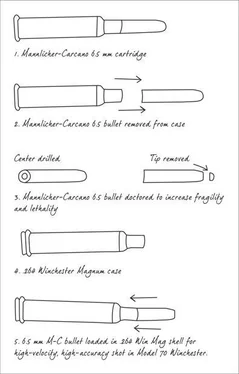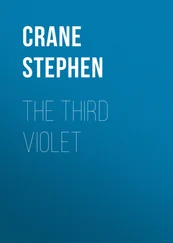Stephen Hunter - The Third Bullet
Здесь есть возможность читать онлайн «Stephen Hunter - The Third Bullet» весь текст электронной книги совершенно бесплатно (целиком полную версию без сокращений). В некоторых случаях можно слушать аудио, скачать через торрент в формате fb2 и присутствует краткое содержание. Жанр: Триллер, на английском языке. Описание произведения, (предисловие) а так же отзывы посетителей доступны на портале библиотеки ЛибКат.
- Название:The Third Bullet
- Автор:
- Жанр:
- Год:неизвестен
- ISBN:нет данных
- Рейтинг книги:5 / 5. Голосов: 1
-
Избранное:Добавить в избранное
- Отзывы:
-
Ваша оценка:
- 100
- 1
- 2
- 3
- 4
- 5
The Third Bullet: краткое содержание, описание и аннотация
Предлагаем к чтению аннотацию, описание, краткое содержание или предисловие (зависит от того, что написал сам автор книги «The Third Bullet»). Если вы не нашли необходимую информацию о книге — напишите в комментариях, мы постараемся отыскать её.
The Third Bullet — читать онлайн бесплатно полную книгу (весь текст) целиком
Ниже представлен текст книги, разбитый по страницам. Система сохранения места последней прочитанной страницы, позволяет с удобством читать онлайн бесплатно книгу «The Third Bullet», без необходимости каждый раз заново искать на чём Вы остановились. Поставьте закладку, и сможете в любой момент перейти на страницу, на которой закончили чтение.
Интервал:
Закладка:
He reached into his jacket and pulled it out, the only article except for the box of cartridges I’d given him that both of us had touched. I knew I’d burn it at the first opportunity.
I dropped him at the corner of Main and Elm, then turned left on Elm, passing under the shadow of the Book Depository as I headed down the slight slope of Elm to the triple overpass a hundred yards ahead. I came within sixty or seventy feet of the even more famous grassy knoll on the right. In all the years that followed, I always had a smile – perhaps the only one the operation ever produced on my face – at the expense of the lunatics who believed that the little green lump explained everything.
I found a way to reverse my direction, got back to Commerce, and in ten blocks or so reached the Adolphus. There, I made phone calls to Jimmy and Lon to set up a real-time run-through that night, as we would do for the next six nights, to get used to the routes, the patterns of the shadows, the rhythm of the traffic, the different hues of darkness as the conditions altered the nighttime weather.
That night after dinner, I had a moment of happiness and calm. I was doing something big that I thought would help my country at the cost of one small, worthless, ugly man. It did not feel wrong at all to me, and I had no doubts, no qualms, no reservations. I was going to make a difference. I was going to change history.
The next morning, Wednesday, November 20, 1963, I woke, ambled groggily to my door, opened it, and grabbed the newspaper, the Morning News I think it was, and before I sat down, I saw the headline: “JFK Motorcade Route Announced.” I had not known Jack Kennedy was coming to Dallas on the twenty-second. But as my eyes ran down the story, I saw the names of streets I had driven the morning before: “. . Houston to Elm, Elm under the triple overpass. .,” and I knew in an instant that I had been given a chance few men have. Circumstance had bent itself to offer me an opportunity that was not only the logical outcome to my ruminations, but almost a moral obligation. Who could say no to such a possibility? Not Hugh.
Ah, Vod. So dependable. Such a friend, an ally. Vod always has my back, my best interests at heart, my happiness paramount in its fermented little potato brain. With Vod at my side as well as in my blood, I launch into the final act, which would leave me, theoretically at least, history’s most abominable man. I slew the prince who was the king. I widowed the goddess of all our dreams; I made Ari Onassis possible. (There’s one I know I’ll never be forgiven for!) Oh, and I orphaned those two little so-cute-it-hurts-even-now kids. Bad Hugh. Hugh, you bastard. Vod, a little help here, please.
I knew I had to convince three people to help me tilt Operation LIBERTY VALANCE a little bit, so that instead of shooting General Edwin Walker on November 25, 1963, we would shoot John Fitzgerald Kennedy on November 22, 1963, two and a half days hence.
The three people were Lon Scott, Jimmy Costello, and myself. As for Alek – Lee Harvey Oswald – I knew the glory pig would take zero convincing. The idiot would be like a rabid dog pulling on a leash. He might have come up with it himself if he’d read the paper. It was everything his fetid little sewer-Commie mind demanded and had dreamed about for years. His eagerness would surely get him killed and everyone else electrocuted. But I felt I could control him and improvise a new plan so brilliant that even he couldn’t screw it up too badly. I would see him tonight at the bus stop.
As for me: Did I believe in what I was about to do? And if I didn’t, how could I convince the others? I tried to apply the dictates of the New Criticism to the ethical issue, as if it were a poem demanding the most rigorous attention to detail, untarnished by the excesses of biography, assumption, sentimentality, lugubrious emotionalism. Read the text, I told myself: read the text alone.
Here was the text I read, trying to ignore the young president’s glamour, his vitality, his beautiful children, his strangely beautiful but beautifully strange wife, his brood of brothers, cousins, sisters, parents, whatever. No room for sailboats, touch football, movie stars, no thought of parochial politics (we were both Democrats), all that out. Lyndon Johnson, whoever he was, out.
My clinical reading of the text that was JFK demanded only one answer: what were his intentions in the Republic of South Vietnam? I didn’t give a damn about Castro or Cuba, I didn’t see much that could be done in Europe except minor maneuvering for minor leverage, a missile base exchanged here or there, a spy betrayed, a minister blackmailed, all of it, in the long haul, meaningless.
But what of that steamy glade, with its ravishing jungle and mountain landscape, its little yellow people who wanted nothing in life except to be left alone to raise their rice plants ankle-deep in water and shit? The issue was: would JFK get us into a big shooting war there? If so, who would fight it? The tiny yellows he cared nothing about – they would die in the hundreds of thousands, for sure – or a generation of college kids unlikely to care to risk a war to save a country so far away, whose rise or fall meant so little to them and would not be worth dying for. Left to their own devices, neither of these demographics would vote to let slip the dogs. It wasn’t like the Vietcong had bombed Pearl Harbor, much less Winnetka. No, it would happen only if JFK willed it to happen by inventing reasons to send our troops over there. He’d already begun, and I’d seen them, tan, lean young men with the close haircuts and narrow eyes of highly trained professional military, the so-called Green Berets, yearning for a war they thought would be quick and glorious, with a nice sniff of powder to it. I knew there were a lot more of them there than the Times had reported, and I knew also that despite my report and Cord’s passionately earned and argued reluctance, there were those in the Agency who’d smelled the treasure of career enhancement hunting Pajama Charlie for a year already.
To me it was shit. The place was infinitely more complex than anybody in Washington suspected, and it had the kind of suction that could drag us down to ruin in its whirlpools of deceit and danger, its anthropological conundrums and village traditions, its cruelty; our enemies would degrade us, but not as much as we would degrade ourselves in fighting them.
I took, as I said, the recent murder, under our auspices, of Diem as doubling down on a bad bet. We knew Diem was so corrupt that his military was incapable of winning a war, and that the reigning tactical concern for field and general-grade officers, much less administrators and bureaucrats in Saigon, would be filling their own secret bank accounts in Paris. We had decided to wipe that corruption off the face of the earth, to encourage new, younger, American-trained (and American-allied) officers who would win the war. If they proved unable, we would begin to send more than “advisers”: we’d send divisions, we’d send our new helicopter-borne army, and the general slaughter – as well as Eisenhower’s feared “land war in Asia” – would be on. There was no telling how many would die, theirs, ours, the unfortunate peasants caught in the middle, and for what? One piece on the board, said to be a domino but maybe just a piece on the board.
That JFK was a philanderer, that he was screwing Cord’s wife (among the many), that he came from a family as narrow and clannish and narcissistic as any Tudor or Hanoverian, all these I tried to discount. That his heroism in the Pacific was greatly exaggerated, that he received the Pulitzer for another man’s work, that his father bought him every election he ever won, all that I tried to push aside. I don’t know if I did. But in the end I made up my mind, and once I’d done that, it was on to the others.
Читать дальшеИнтервал:
Закладка:
Похожие книги на «The Third Bullet»
Представляем Вашему вниманию похожие книги на «The Third Bullet» списком для выбора. Мы отобрали схожую по названию и смыслу литературу в надежде предоставить читателям больше вариантов отыскать новые, интересные, ещё непрочитанные произведения.
Обсуждение, отзывы о книге «The Third Bullet» и просто собственные мнения читателей. Оставьте ваши комментарии, напишите, что Вы думаете о произведении, его смысле или главных героях. Укажите что конкретно понравилось, а что нет, и почему Вы так считаете.












